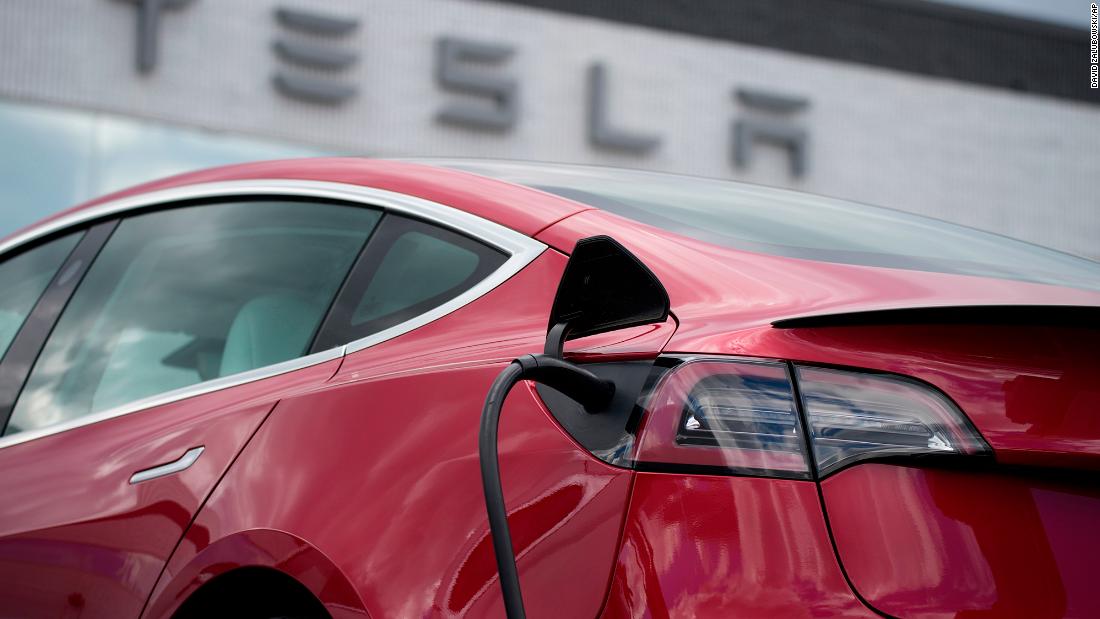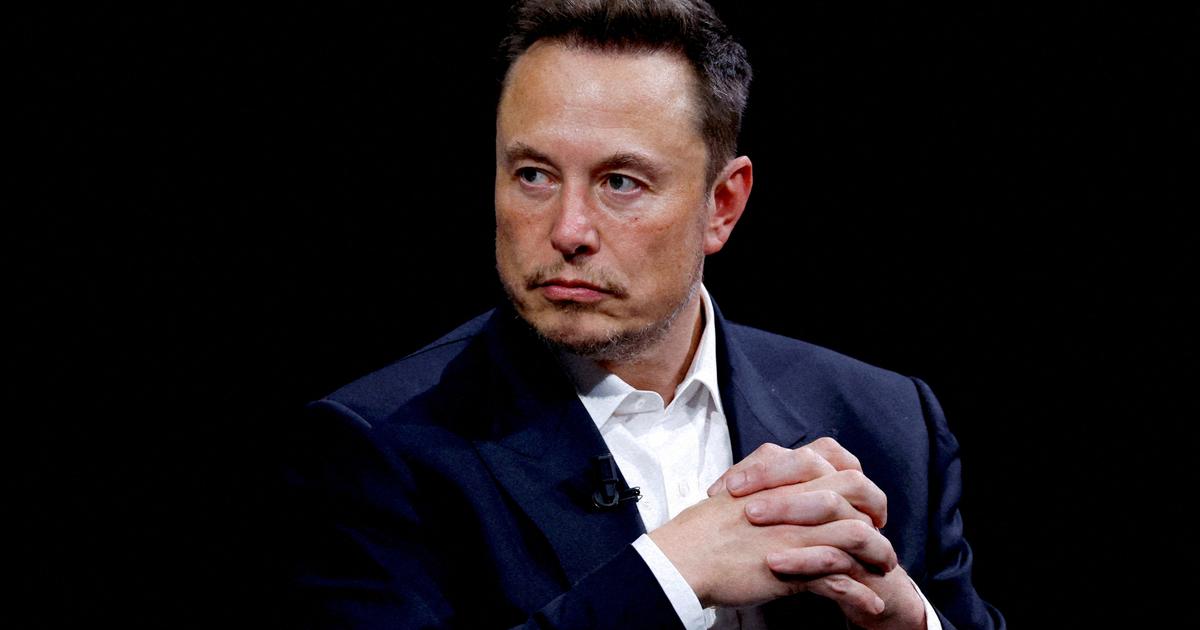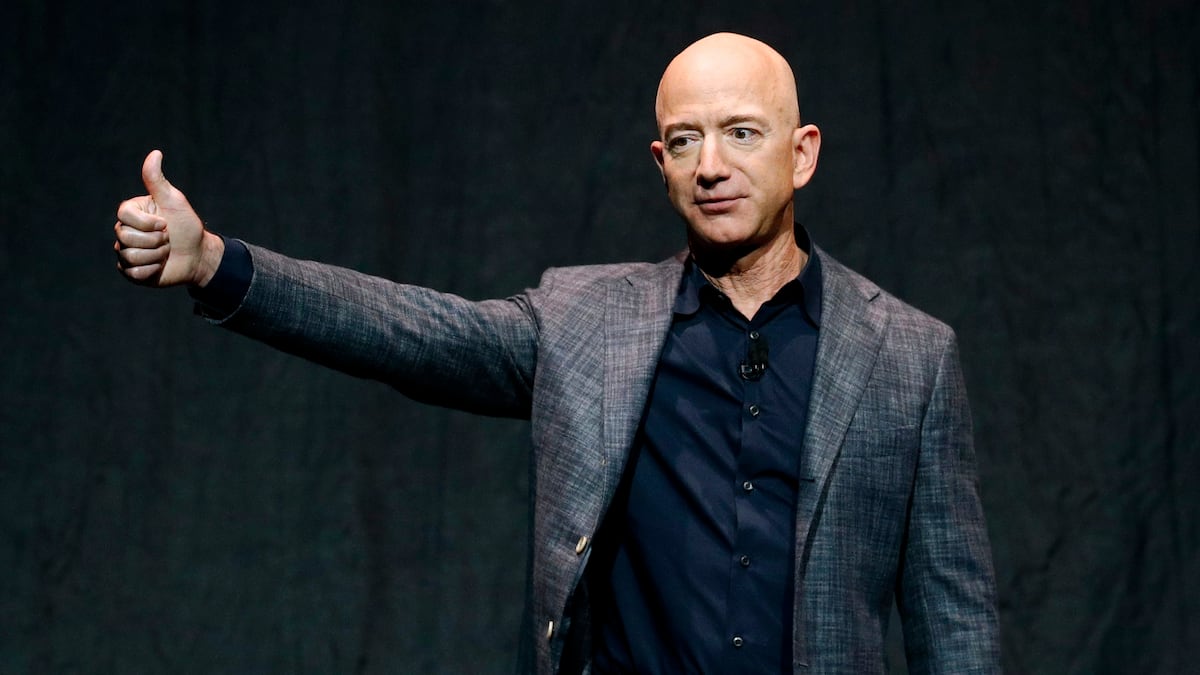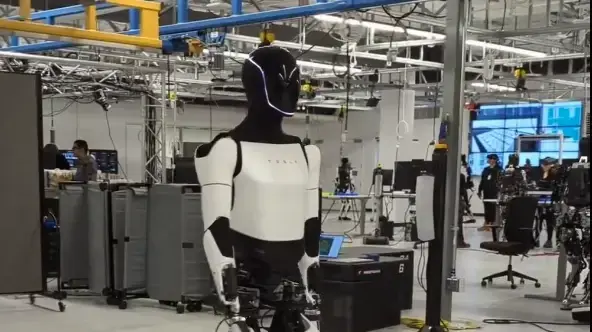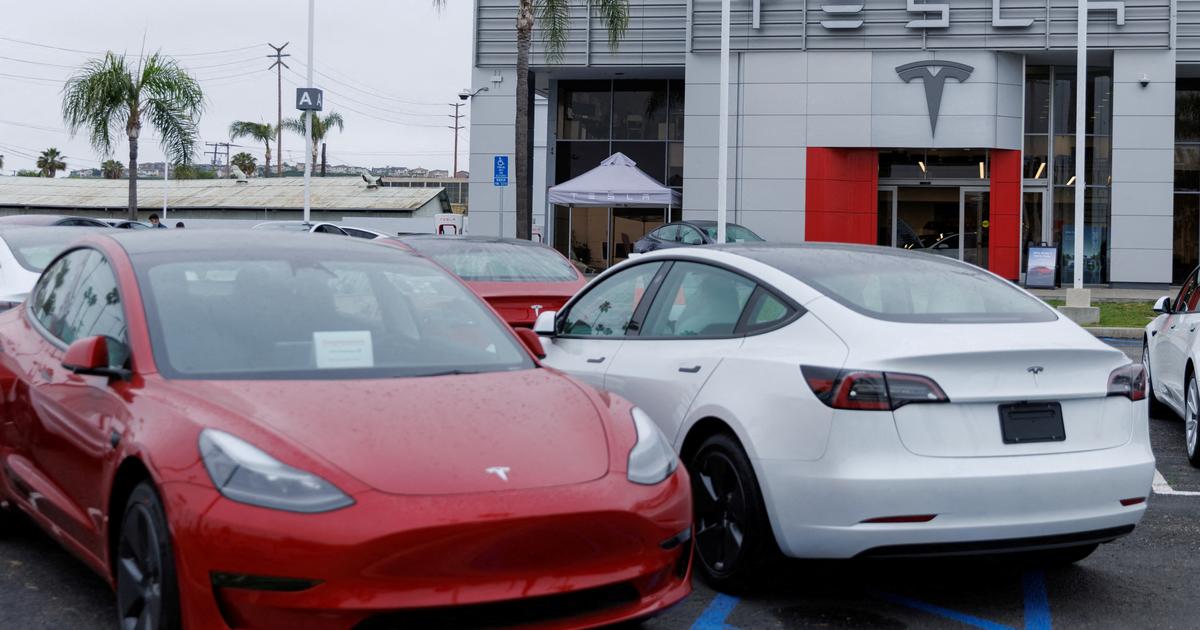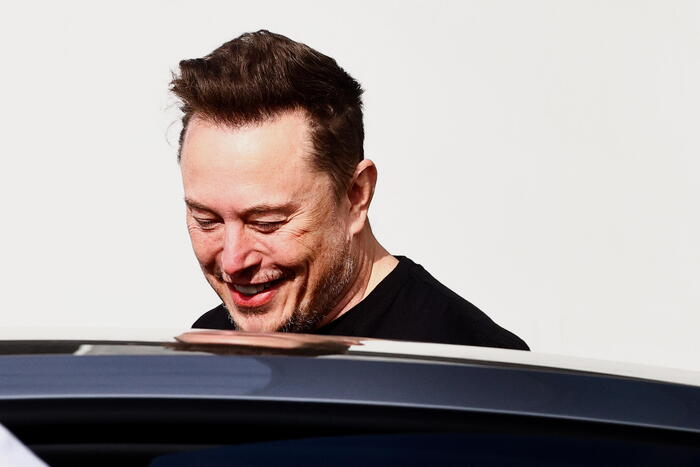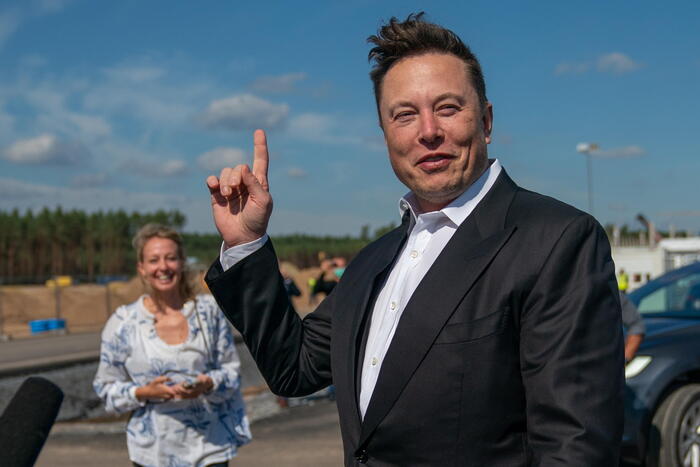Where is Elon Musk's Tesla that SpaceX sent into space?
1:21
New York (CNN Business) --
Elon Musk has repeatedly boasted (or, perhaps, complained) that he will pay more in federal taxes for 2021 than anyone has ever paid: some $11 billion.
But apparently Tesla will not pay a penny.
Tesla may not plan to pay federal taxes at any point in the immediate future, even though the company just reported its most profitable year yet.
In 2021, Tesla posted net income of $5.5 billion and adjusted income of $7.6 billion.
Tesla tops profit record despite chip shortage
But buried in a footnote to its recent annual financial filing with the Securities and Exchange Commission, Tesla reports that its US operations lost $130 million last year, before of taxes.
He claims that all of his pretax profits, more than $6 billion, come from foreign operations, although 45% of his income comes from sales in the United States.
Although Tesla lists its foreign tax bill as $839 million, its state tax bill was only $9 million.
And his federal tax bill was zero.
"That's beyond common sense, but not the US tax code," said Martin Sullivan, chief economist at Tax Analysts, a nonprofit tax publisher, and an expert on the tax practices of US businesses.
Tesla taxes: moving profits abroad, on paper
Sullivan believes that the $130 million loss from its US operations is likely due to a common practice of US multinational companies: structuring their operations so that foreign subsidiaries report income, leaving the US operation has little or no taxable income to report.
advertising
For example, a company may assign its intellectual property to one of these foreign entities and charge its US unit a fee for using that property.
And so, the foreign operation is very profitable, while the US company, charged with "costs" for the company itself, declares losses or very little income.
"It's an American multinational thing. It's very common. It's almost bad practice not to do it," Sullivan said.
What are tax havens and where are the main destinations for the world's secret money?
A recent report by the US Department of the Treasury revealed that 61% of the international profits of US multinational companies are declared in seven small countries: Bermuda, Caymans, Ireland, Luxembourg, the Netherlands, Singapore and Switzerland, known as tax havens.
It's a practice that many elected officials and the Biden administration have vowed to crack down on.
"Tesla and other giant companies have long used scams and loopholes to avoid paying taxes, and that has to end," said Senator Elizabeth Warren, a frequent critic of Musk.
"Democrats are working to end Republican tax breaks for corporations that move profits and jobs overseas."
So far Congress has taken no action to stop it.
However, Tesla's financial statement does not detail what exactly it did.
For example, he does not say in which country or countries he made his profits while reporting losses in the United States.
And Tesla declined to answer questions about his statement.
Tesla does not expect to pay taxes in the US in the short term
Considering the significant financial aid Tesla has long received from government subsidies for its electric vehicles, the company doesn't have to play the offshoring game to avoid paying taxes.
Instead, you could use past losses to shield your current income from any tax bills.
Again, this is standard practice for companies that lose money: losses lead to a future tax break.
Technology companies that lose money for years before turning a profit, such as Amazon, have used this technique.
So have old-fashioned companies that are in financial trouble, like all US airlines, which will likely not have to pay taxes for years after posting billions of dollars in losses during the pandemic, despite receiving thousands of million in federal aid.
Similarly, Tesla's US car competitors lost so much money in the first decade of this century that General Motors and Chrysler needed government bailouts.
Despite those bailouts, neither company paid taxes for several years once they were profitable again.
General Motors was America's largest automaker for nearly a century.
It is about to be dethroned by Toyota
Past losses are a huge and very valuable future tax benefit known as "net operating loss write-off."
Tesla lost money for more than a decade before it finally started reporting net income in 2020. They were real losses, coming as the costs to develop and build its vehicles in their early years far exceeded the money it could afford. sell them.
He did so in the expectation of future profits as demand increased and costs decreased.
That is exactly what happened.
But, by racking up billions of dollars in losses, Tesla was able to rack up net operating losses that it could use in the future.
Still, Tesla disclosed in this week's financial statement that it hasn't used any of those past losses to shield current income from taxes.
And he pulled an accounting stunt that suggests he doesn't know if he'll ever have to use those past losses to protect his US income.
Tesla is quite optimistic about its future, expecting 50% annual sales growth for the foreseeable future.
If he believed his pre-tax losses on his domestic operations were temporary, he probably wouldn't have taken the step of writing down the value of those past losses as a way to eliminate future US taxes, according to Sullivan.
Is Tesla losing money at home?
There's another possible reason Tesla might have reported a pre-tax loss on its US operations: one that's not so much an accounting stunt designed to cut taxes as it is a warning sign about the company's viability.
Perhaps it is still losing money on the vehicles it sells in the United States and can only make money by using lower costs from a relatively new factory in Shanghai, China.
That is what one of Tesla's most ardent critics and skeptics believes.
Gordon Johnson of GLJ Research points out that Tesla was losing money overall until after it started producing its vehicles in Shanghai in October 2019. He thinks investors are giving Tesla too much credit for US profits that he doesn't think it will. be real
"I think it's a massive deal," he said of Tesla's statement this week.
"In effect, they have said they don't plan to use any of the net losses. That means their US operations are losing money. It's an argument we've made over and over again. Outside of China, Tesla loses money."
But other analysts who have examined its accounting insist that Tesla's profits, both at home and abroad, are real, regardless of what its US tax returns say.
Johnson said that if he is wrong, it is up to Tesla to be more transparent.
"The reality is that until they provide information, both explanations could be correct," he said.
Musk's rare tax bill
Musk has a history of using US tax laws to pay little or no federal personal income tax.
A ProPublica report shows that by 2018 Musk and many other Americans near the top of the world's richest people paid no income taxes at all.
Why is a group of ultra-rich proposing to pay more taxes?
In Musk's case, he receives no salary from Tesla, only very valuable stock options, as a form of compensation.
And, under the US tax code, he doesn't have to pay taxes on those options until he exercises them to buy shares at a fraction of their current value.
You would also have to pay taxes if you sell the shares you already owned because of your previous investment in the company, something you have rarely done.
But he also did it last year.
Musk has not exercised most of the options he has.
But he had options to buy 22.9 million shares expiring in August 2022, and he began exercising those options to buy additional shares late last year.
In all, he spent $142.6 million to buy $23.6 billion worth of stock, giving him $23.5 billion in taxable income, taxable for 2021 at the federal rate of about 41%.
Elon Musk is about to get even richer
Musk also sold a small fraction of the additional shares he already owned, sales that amounted to a taxable $5.8 billion, at a lower capital gains rate.
Together, those stock transactions likely led to the approximately $11 billion federal tax bill that he has tweeted about.
But that could be the last time for years to come that you pay a substantial federal tax, unless Congress passes one of several proposals to tax the net worth of the country's wealthiest people, rather than just their income.
Several Democratic senators, including Elizabeth Warren, Bernie Sanders and Ron Wyden, have proposed it, but so far it hasn't come close to passing.
Not surprisingly, Musk opposes these efforts and has mocked the three senators on Twitter.
Elon Musk trolls Bernie Sanders on Twitter: "I keep forgetting you're still alive"
The options Musk exercised last year that produced the huge tax bill are not the end of his options.
Tesla's financial statement this week reveals that Musk received another 8.4 million options, bringing his total to 67.5 million.
But none of those options expire until 2028. So it's likely to be five years before he starts exercising them, unless he leaves the company sooner.
If you go back to paying zero federal taxes, there's a good chance your tax bill and that of your parent company will be the same for those five years.
Elon MuskTesla

